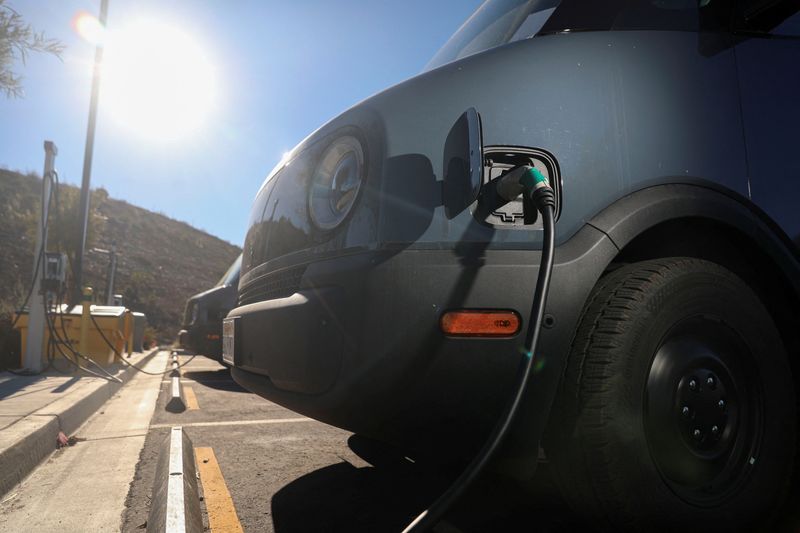By Lisa Baertlein
(Reuters) - The United States will introduce incentives on Jan. 1 for delivery firms and other companies to switch to electric trucks as part of a broad push to get polluting, workhorse vehicles off roads and out of neighborhoods.
The first-of-its-kind incentives, established under President Joe Biden's Inflation Reduction Act (IRA), will offer tax credits of $7,500 or $40,000 depending on the size of the electric vehicle (EV). Delivery companies like FedEx (NYSE:FDX) and Amazon.com (NASDAQ:AMZN) would qualify at the $7,500 level for many of their electric trucks.
Those tax credits can be combined with voucher programs in California, New York and other states that are spending billions of dollars to convince companies to switch to zero-emissions vehicles. The IRA's commercial EV credits do not have "made in the USA" rules that apply to passenger cars.
WHY DOES BIDEN'S CLIMATE POLICY INCLUDE COMMERCIAL EVS?
The U.S. transportation sector, which includes large and small trucks, buses and airplanes, accounts for more than one-third of the planet-warming greenhouse gases produced in the United States.
In a year marked by yet more floods, hurricanes and droughts linked to climate change, governments and companies have been forced to look more closely at the financial risks and their exposure to liability.
Incentives should help bring EV sticker prices closer to parity with traditional gas-powered vehicles, experts said.
That will "help level the playing field for electric vehicles," said Ben King, associate director at Rhodium Group, a research firm.
Jim Farley, chief executive at electric van market leader Ford Motor (NYSE:F) Co, this year predicted that IRA tax credits would have a "dramatic impact on the adoption of EVs."
More commercial EV purchases should lower manufacturing costs and vehicle sticker prices - which should attract even more buyers, experts said.
"We're at a tipping point," said Jim Chen, vice president of public policy at Rivian, which has Amazon-branded EVs rolling on streets in more than 100 U.S. cities. Amazon in an email told Reuters it expects the IRA to "transform our collective approach to reducing carbon emissions across sectors."
"We're already hearing from customers that they're excited about this," said Travis Katz, CEO of General Motors (NYSE:GM)' BrightDrop, which counts FedEx, Walmart (NYSE:WMT) and DHL Express Canada as customers.
WHAT HURDLES REMAIN?
Paul Rosa, senior vice president of procurement and fleet planning at Penske Truck Leasing, said the EV incentives may prompt purchases by early adopters but they are not enough to lure customers off the sidelines en masse. That is because they do not close the sticker-price cost gap and can come with onerous rules, he said.
"It still doesn't get them over the goal line," Rosa said.
